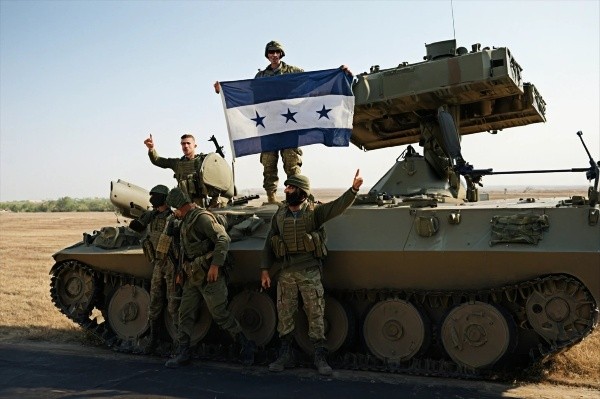Iran’s Plan to Strike Back Against the U.S.
Iran’s Military Preparations Following U.S. Attacks
Loading...

Russian and Syrian jets reportedly attack Idlib city on fifth day of opposition’s surprise advance in northwest Syria.
Ongoing Conflict in Northwest Syria
In a significant escalation of the Syrian conflict, opposition fighters are reportedly advancing towards the northern city of Hama, following their recent capture of Aleppo. This offensive, which began last week, marks the fifth day of an unexpected rebel push in northwest Syria, leading to increased counterattacks from Syrian government forces and their Russian allies.
Rebel Gains and Government Resistance
The Syrian opposition, spearheaded by the group Hayat Tahrir al-Sham (HTS), has made remarkable progress in the region, taking control of several strategic locations, including Aleppo—a city that houses over two million residents. This advance has prompted government forces, under President Bashar al-Assad, to reinforce their positions in Hama and launch airstrikes on opposition-held areas, particularly in Idlib province and Aleppo. Reports indicate that the Syrian military has been resupplying its forces with heavy equipment and rocket launchers to counter the rebel advance.
As the conflict escalates, the United Nations special envoy to Syria, Geir Pedersen, has called for an urgent political resolution, warning that the ongoing violence poses severe risks to civilians and threatens regional and international stability.
The Dynamics of Power
The Syrian civil war, which began in 2011 as a series of popular uprisings, has seen fluctuating power dynamics over the years. Since 2020, front lines have remained relatively unchanged, with rebel groups largely contained to a small portion of Idlib. However, the recent offensive by HTS, which has distanced itself from its origins as the al-Nusra Front, has shifted the balance of power, leading to notable victories, including the capture of the supply-line town of Khanasir and military installations in Aleppo.
In his first public comments regarding the situation, President al-Assad vowed to maintain the government's stability and territorial integrity against what he referred to as "terrorists." Despite his assurances, reports from the Turkish-Syrian border indicate a volatile and dynamic situation, with rebel forces attempting to maintain their foothold near Hama.
Civilian Impact and Humanitarian Crisis
The ongoing conflict has led to dire humanitarian consequences, with the United Kingdom-based Syrian Observatory for Human Rights reporting civilian casualties from airstrikes. Recent attacks attributed to Russian and Syrian forces have reportedly resulted in the deaths of at least 25 civilians, including children, and injured numerous others. The White Helmets, a civil defense organization, have confirmed these casualties, highlighting the tragic toll of the conflict on innocent lives.
Years of warfare have compounded Syria's humanitarian crisis, displacing thousands more in the latest round of fighting. Activist Razan Saffour, who has family in Aleppo, expressed concerns over potential retaliatory measures by government forces, recalling the devastating "scorched earth" tactics used in previous offensives.
Regional and International Reactions
As the situation unfolds, key regional players have reaffirmed their support for the al-Assad regime. Iranian Foreign Minister Abbas Araghchi's visit to Damascus underscores Tehran's backing, while Jordan's King Abdullah II and UAE President Sheikh Mohamed bin Zayed Al Nahyan have also expressed solidarity with al-Assad.
Amidst the chaos, some residents of Aleppo are cautiously optimistic, hopeful for a shift in control after years of government rule. While anxiety prevails, there is also a sense of anticipation for what the future may hold as rebel groups gain territory at an unprecedented pace.
In conclusion, the recent developments in Syria highlight a critical juncture in the protracted civil war, with implications for both local civilians and broader regional stability. The international community watches closely as the conflict continues to evolve, with calls for a diplomatic resolution growing increasingly urgent.
Editor
Iran’s Military Preparations Following U.S. Attacks
Troops remain in five strategic locations, raising fears of renewed tensions and long-term occupation.
Opposition forces have taken control of the capital after a significant offensive. Here is how it unravelled.
